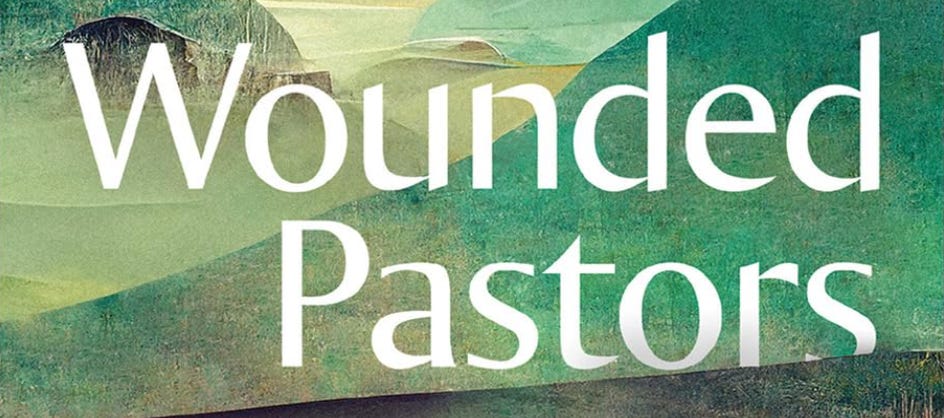What's Burnout?
People are burned out.
Pastors are burned out.
Parents are burned out.
Burnout affects many and their struggles are genuine, and often transparent.
In her remarkable essay, “Burned,” Jill Lepore, in The Deadline: Essays, reports that “burnout is generally said to date to 1973,” though later in her essay she connects it to “late capitalism” and “from the Reagan era forward.” By 2020 some have been thinking a whole generation is suffering from burnout. Nothing says burnout is a generational disorder quite like this one: “If you think you're burned-out, you're burned-out, and if you don't think you're burned out you're burned out. Everyone sits under the shade of that juniper tree, weeping, and whispering, ‘Enough’.”
Lending their weight to the diagnosis is the World Health Organization. So in 2019 the WHO “recognized burnout syndrome” as an “occupational phenomenon, not a medical condition.” What drew my attention in reading this essay is that burnout seems to be an almost gauche expression for a diagnosis with more gravity. Yes, depression. As Lepore writes, “burnout is a metaphor disguised as a diagnosis.” The term burnout arose in the Haight-Ashbury district for those who, after extensive drug use, were “exhausted, emptied out, used up, with nothing left but despair and desperation.” It was a man with an ironic name who gave us the term “burnout.” His name? Herbert J. Freudenberger, and his family name means village of joy. He studied the Haight-Ashbury folks, labeled a phenomenon, and the term both stuck and spread. We now use it without thinking because it’s far more acceptable than depression.
Then writers and psychologists and pastors joined in to compose lists that indicate burnout. It included items like “Do you seem to be working harder and accomplishing less? Do you tire more easily? Do you get the Blues without apparent reason? Have you become increasingly irritable? Do you suffer physical symptoms like pains, headaches and lingering colds?”
A Korean-born, Berlin-based philosopher, Byung-Chul Han, who studies burnout, says “every age has its signature afflictions.” But he cuts through the cant by identifying burnout with depression and exhaustion, and then pierces through the curtain with “the sickness of a society that suffers from excessive positivity” and it comes from an “achievement society,” and Lepore adds that burnout is connected to “a yes-we-can world in which nothing is impossible, a world that requires people to strive to the point of self-destruction.” Han tosses this into the mix: “It reflects a humanity waging war on itself.”
Put with an overused trope: something’s in the air in our culture that promotes burnout. We’d do well to get an air cleaner.
Since the 1970s Christina Maslach is the burnout scholar to read. Her definition: “burnout is a syndrome of emotional exhaustion, depersonalization, and reduced personal accomplishment that can occur among individuals who do ‘people work’ of some kind.” That’s the one that rang the bell for me. I communicate with pastors all the time. A survey in the Autumn of 2023, Exploring the Pandemic Impact on Congregations, indicated more than forty percent of clergy had seriously pondered leaving the ministry since 2020. More than half considering leaving the pastoral ministry entirely.[1] Conflict was the issue, burnout was the symptom. People are leaving the church, as we all read about weekly, and sometimes for the same reasons. They’re burned out about church.
Back up to the bold letters above, which are my contribution to that sentence. People work is exhausting. COVID-19 intensified people work. The kind of people work done during the pandemic days was often conflictual. Conflictual people work drains pastors and human resources folks. Burnout waits at the end of the corridor.
Which is why I believe the new book by Carol Howard and James Fenimore, Wounded Pastors: Navigating Burnout, Finding Healing, and Discerning the Future of Your Ministry, deserves to be read by pastors. These two hear the hearts of pastors, recognize their voices, and know their names when it comes to exhaustion and burnout. Their experience with the wounds pastors are experiencing as they navigate burnout leads them to recommend the following helpful habits to reframe and refocus:
Nurture one’s interior
Cultivate love
Find humor
Tend to awe
Gain strength
What they do not say, but which they are saying implicitly throughout this entire book, is to cut back on the work schedule, open up slots in your week that nourish, tone down personal and pastoral and professional ambition, and pursue the gifts that you have rather than satisfy the expectations others have.
Will not the question then be, “But will I get enough done?” Isn’t that what Lepore points to the generational affliction?
[1] https://apnews.com/article/christian-clergy-burnout-pandemic-survey-24ee46327438ff46b074d234ffe2f58c. The study, entitled Exploring the Pandemic Impact on Congregations, can be found at this link:
chrome-extension://efaidnbmnnnibpcajpcglclefindmkaj/https://www.covidreligionresearch.org/wp-content/uploads/2024/01/Clergy_Discontentment_Patterns_Final.pdf. Peter Smith covered the survey for AP News.
All details and quotations in this section come from these two sources.



Interesting. I wonder how much of this also has to do with personalities. One example: Many pastors classify themselves as introverts, so the "people work" would probably be more draining to them. Other variable in personalities may come into play as well.
Thank you Scott for sharing this book. It is an important subject that needs to be discussed. I’ve been there both with “he’s a burnout” and burnt out with “ church” and times with my work.